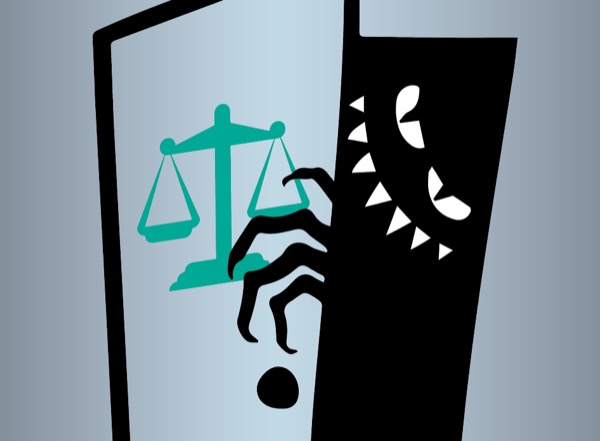
PennState Health
Alternate Director for Pennsylvania American Society of Anesthesiologists
Vice President of Scientific Affairs Pennsylvania Society of Anesthesiologists
For a physician, a medical malpractice lawsuit is like that monster in your closet—the thing that keeps you up at night. When I was just starting my career, a wise old doctor asked whether I was ever a defendant in a medical malpractice case. I proudly said “no.” His response was quick and eye-opening: “You obviously haven’t practiced long enough.” The point is that it is near inevitable that a busy physician eventually will be sued.
Obviously, chances vary by specialty and patient population. However, even a perfect doctor, found only in the world of unicorns and rainbows, will have bad outcomes.
But bad outcomes are not enough to generate a lawsuit. There must be a “preponderance of evidence” consistent with a deviation from the “standard of care.” True, sort of.
I have been an expert witness for the defense in a few dozen medical malpractice cases. Why only the defense? Because if it gets to me, I feel that there is reasonable doubt whether negligence occurred. If negligence was obvious, a monetary settlement would have been requested and a check sent. If there is doubt, in my opinion, the doctor and hospital are innocent.
As opposed to a scientific search for truth, where a hypothesis is made and a study performed leading to an outcome that determines its validity, a lawyer has a bad outcome and creates a story to explain that outcome. The plaintiff’s attorney will hire a member of your peers to provide expert testimony describing your deviation from the standard of care. Many of these opinions have been some of the best pieces of medical fiction I have ever read, which is another reason I am not a plaintiff’s expert.
Here is what I recommend to do, and not do, if sued.
If a bad outcome occurs, talk to the patient, or if there is a death, the family. A lack of communication has led many patients and families to seek legal counsel. State that you are sorry as any human being would be for that bad outcome, but avoid describing anyone’s actions as a mistake.
Stay out of the chart unless your presence within the chart or the note you plan to write will improve the patient’s care and/or outcome. If you do write a note, within the note itself, state that it is after-the-fact with the current time and date and why the note must be written so there is no possibility that it can be construed that the intent of the note was to deceive the reader. Remember that within an electronic medical record (EMR), every login and page viewed is recorded. The urge often is to rummage through the records and try to explain your actions further. I don’t think doing it ever helps the provider, facility or patient.
After a lawsuit has been filed against you, ask your lawyer to provide you with the records, rather than you going into the EMR or hard copy chart and pulling the data yourself. Once you receive the records, review them to refresh your memory because two years or so may have elapsed since the event occurred.
Do your best not to talk about the case with colleagues unless at the request or in the presence of your lawyer. Assume every face-to-face conversation, phone call, email or text is discoverable. I have seen pages of phone texts with pretty damning statements that I assume the writer thought would never be read by anyone other than the intended recipient.
There will be a list of complaints directed at you as a defendant. Your integrity, at least in your opinion, will be under attack. Nobody wants to hear or read that they are bad at what they do. Stress, and a strain on your wellness, will inevitably occur. Seek counseling as needed to ensure your well-being. This process will take years, so it is not a short-term experience.
A significant period of time will go by, but eventually you will be deposed. During the deposition, in the presence of your lawyer and the lawyers of other defendants, one of the plaintiff’s attorneys will ask you questions about the case. It will be hours of questioning, starting with your background and then to a journey into just about every nook and cranny of the records, focusing on your involvement as well as that of other defendants. Your attorney will want to do practice depositions as you did before your oral board examination. It’s incredibly helpful. Insist on it if not offered.
Your deposition is a legal record, and it could be your only chance to state your case prior to a decision being made. Most cases never make it to a courtroom. Either they are dropped or a settlement is made. So take it very seriously.
There will be frequent interruptions, objections and other legal discussions, which could confuse you. Do not hesitate to ask to have a question repeated or clarified. This gives you time to breathe and think. Regardless of the small talk, the person asking the questions is not your friend. You stand between that lawyer and a paycheck. The plaintiff’s attorneys are spending money to proceed with this case, and few if any are there out of pure altruism. Their website boasts about the money obtained from malpractice cases. There is a constant search for a misstep or a sign of weakness to attack. I know this sounds terrible, and I am not saying they are terrible people, but they have a job to do.
The attorney asking the questions may initially attempt to have you place blame on other defendants, such as other physicians, nurses or the hospital, purposely “giving you hope” that their wrath will not be directed toward you. Your time will come. So, stay in your lane. For example, if an anesthesiologist is asked about the surgeon’s care, the anesthesiologist should say, “I am a defendant, not an expert in this case. Also, I am an anesthesiologist, not a surgeon; therefore, I choose not to render an opinion about the surgeon’s care.” If the attorney references an opinion about you rendered by another defendant, you can defend your actions, but do not buy into the “he said, she said” that plaintiff’s counsel hopes will occur, which I promise you, will be used against both of you. My experience has shown that throwing another defendant under the bus to hopefully improve your chances of being found innocent or removed from the case will backfire. It just makes you look guilty.
Take your time and ponder the question asked. It is not a speed test. Avoid getting angry, because that is when answers are based on emotion and not on fact. Remember, you were not negligent, so a clear, truthful answer will best portray your innocence of negligence. State facts, not opinions. Again, you are not a paid expert, so your opinion is not of value to you or the case.
Avoid falling into the trap of defining standard of care, of which there are many definitions. One reasonable definition would be “the level at which an ordinary, prudent professional with the same training and experience in good standing in a same or similar community would practice under the same or similar circumstances.” However, a layperson such as a juror may assume that it is a level or type of care that if deviated from in any way, would be considered unacceptable. Rather, state that what you did was a common and acceptable way to practice based on the patient and situation.
Avoid quoting literature as a “gospel” for your practice. Rather, state that you use many texts, online resources, experiences and papers to guide your practice, and your practice changes based on the current evidence. If you describe a single text, app or paper as your guide, then anything within that piece of literature that supports the opinions of the plaintiff will be used against you.
{RELATED-VERTICAL}If you make it to court, congratulations. The odds are in your favor. Your deposition, the depositions of others and the report from your expert appropriately supported your innocence. Prior to your appearance, review all the depositions, expert reports from both sides and the records as you did for your deposition in order to be maximally prepared. Wear your best suit to show respect for the process. Speak calmly and direct your responses to the jury. Again, state facts, not opinions. Your expert will state opinions.
Most importantly, be kind and respectful to everyone, including the plaintiff’s attorneys. They don’t expect it, so it takes them off their game. Plus, it will keep you focused and your answers factual and exactly as you want them to be conveyed in the record or to the jury.
Being sued is tough to endure, but you are used to tough situations. You are a physician.
Editor’s note: The views expressed in this commentary belong to the author and do not necessarily reflect those of the publication.


